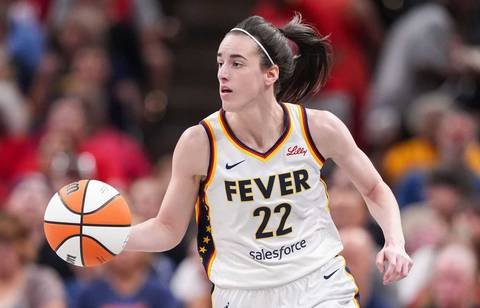
In a moment that left many scratching their heads, tennis legend Billie Jean King recently offered advice to rising basketball stars Caitlin Clark of the Fever and Angel Reese of the Sky that has sparked a mix of confusion and concern. King’s statement, “Don’t think about your legacy,” was meant to be a piece of wisdom, but the response from both athletes and fans alike has raised questions about the true meaning behind the words.
The Advice That Raised Eyebrows
Billie Jean King, a trailblazer in women’s sports who has long been an advocate for gender equality and empowering athletes, sat down with Clark and Reese during a recent event. Known for her candid and insightful guidance, King’s advice was likely intended to remind the athletes to focus on the present, their growth, and not get caught up in the expectations placed on them. However, for Clark and Reese, who are already considered two of the brightest rising stars in women’s basketball, the remark took on a different tone.
“Don’t think about your legacy” could easily be interpreted as downplaying the significance of striving for greatness. Clark, who has already made a massive impact on the court with her incredible shooting ability and leadership, and Reese, whose dominance in the post has earned her a reputation as one of the best, have both faced growing scrutiny as the media begins to turn its gaze toward their potential long-term impact on the game.
For many, the advice seemed counterintuitive. Legacy, after all, is often what drives athletes to push themselves to new heights. The idea of leaving a lasting impact on the sport, inspiring future generations, and securing a place in history is a powerful motivator for many athletes. Could King, in her desire to offer wisdom, have underestimated the weight of legacy for these young players?
A Misunderstanding or a Powerful Message?
While Billie Jean King’s career has been shaped by her drive to break barriers and set a new standard for women’s sports, some have speculated that her advice was perhaps taken out of context. It’s possible that King was attempting to remind Clark and Reese not to get lost in the noise of media attention and external expectations — a reminder to stay grounded in their passion for the game rather than obsessing over how their careers would be remembered.
“Legacy” in the eyes of King may not just be about trophies and accolades but about the impact you have on the people around you, the culture of the game, and how you inspire others to take action. This could have been the nuance behind her words that didn’t come through as clearly as intended.
Yet, for athletes who are constantly being measured and scrutinized, the notion of not thinking about your legacy is a hard one to digest. Both Clark and Reese have heard their names associated with greatness, and the pressure to deliver on that expectation looms large.




